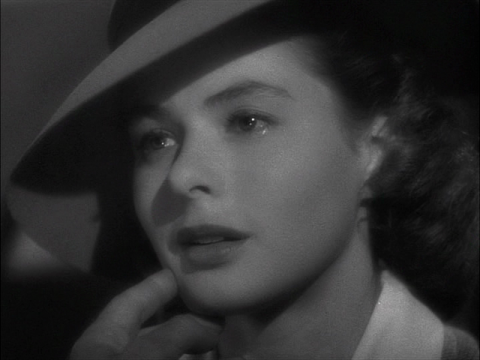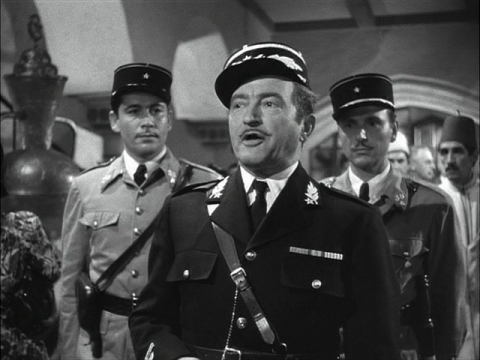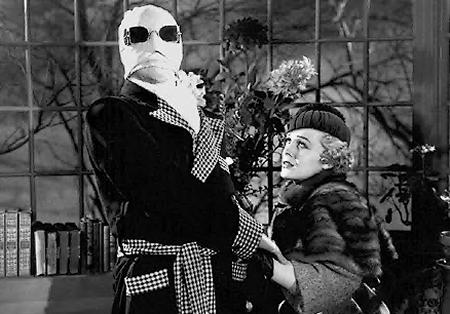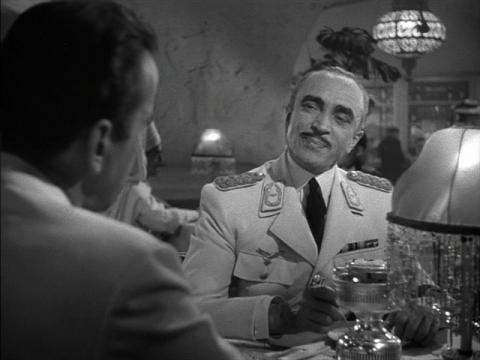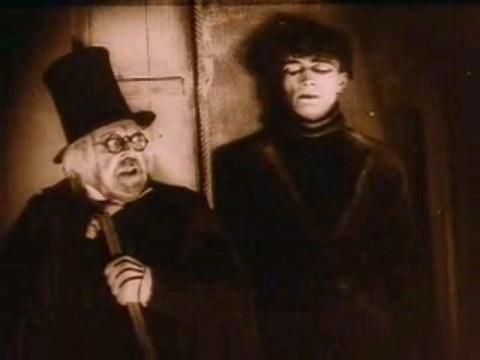One might wonder whether it’s really worth spending so much time on Casablanca in a Gnosis College script, even if it is a key seduction technology. Aside from that, does this movie have much to do with erotic mad science?
Well, eros first. IMHO, the many close-up images of Ingrid Bergman are among the most beautiful images of a woman’s face ever captured on film, including those seen of her in the climactic scene watched by Rob and Jireen.
Looking at these images I’m sometimes hard-pressed to find a word that expresses what I feel, at least in English. There is a verb in Russian which I’ve encountered from time to time, налюбоваться, which means something like “gaze on in awe and wonder,” (the Oxford Russian-English Dictionary suggests “gaze on to one’s heart’s content”) so maybe that’s what I’m looking for.
But is there mad science? Not directly, as far as I can tell. But let’s look at a pair of members of this movie’s talented cast. Here is Claude Rains, who in Casablanca plays the corrupt but ultimately redeemed French police officer Captain Renault.
And where else have we seen (should we perhaps say, “seen?”) Claude Rains? As the Invisible Man of course. And human invisibility turns out to be a rather central device in the Gnosis fictional world.
(Image source: Movieforum.com.) Readers may amuse themselves, if they wish, trying to think of any A-list Hollywood actor who would be credible as both Captain Renault and the Invisible Man.
Consider now also Conrad Veidt, who plays the Nazi villain of Casablanca, Major Heinrich Strasser. (An irony, perhaps, in light of the fact that Veidt was himself a refugee from Hitler.)
Where have we seen him before? Well, it turns out that Veidt earlier in his career had played the part of Cesare, the hypnotically-controlled somnambulist in Das Kabinett des Doktor Caligari (1920). (Personal note: Caligari is one of the few movies I have watched that inspired me to immediately go back to the beginning of the DVD I saw it on and re-watch. The only other one I can recall is Hayao Miyazaki‘s Spirited Away. Go figure.)
(Image source: FilmFanatic.org.) Hypnosis put to dubious use. Also a theme we’ve seen before.
The mad science is out there. You just have to look.
Note: Don’t groan about the presence of a weird-looking Russian verb in the post. If you’re a fan of a certain anime series (and I’m sure many of you are)…
It’s right there in the theme music for the title sequence (albeit as an imperative rather than as an infinitive).
| Aнгелы и демоны кружили надо мной Рассекали тернии млечне пути Не знает счастья только тот, Кто его зова понять не смог… Налюбуйтесь, налюбуйтесь, Aeria gloris, Aeria gloris. |
Angels and demons circling above me Swishing through the hardships and milky ways The only one who doesn’t know the happiness is the one who couldn’t understand his call Watch in awe, watch in awe Heavenly glories, heavenly glories |
Worthy of its own minor tribute in Commencement.
And perhaps not all that far from Casablanca; both do seem to draw on a certain spirit of tough-guy stoicism.

